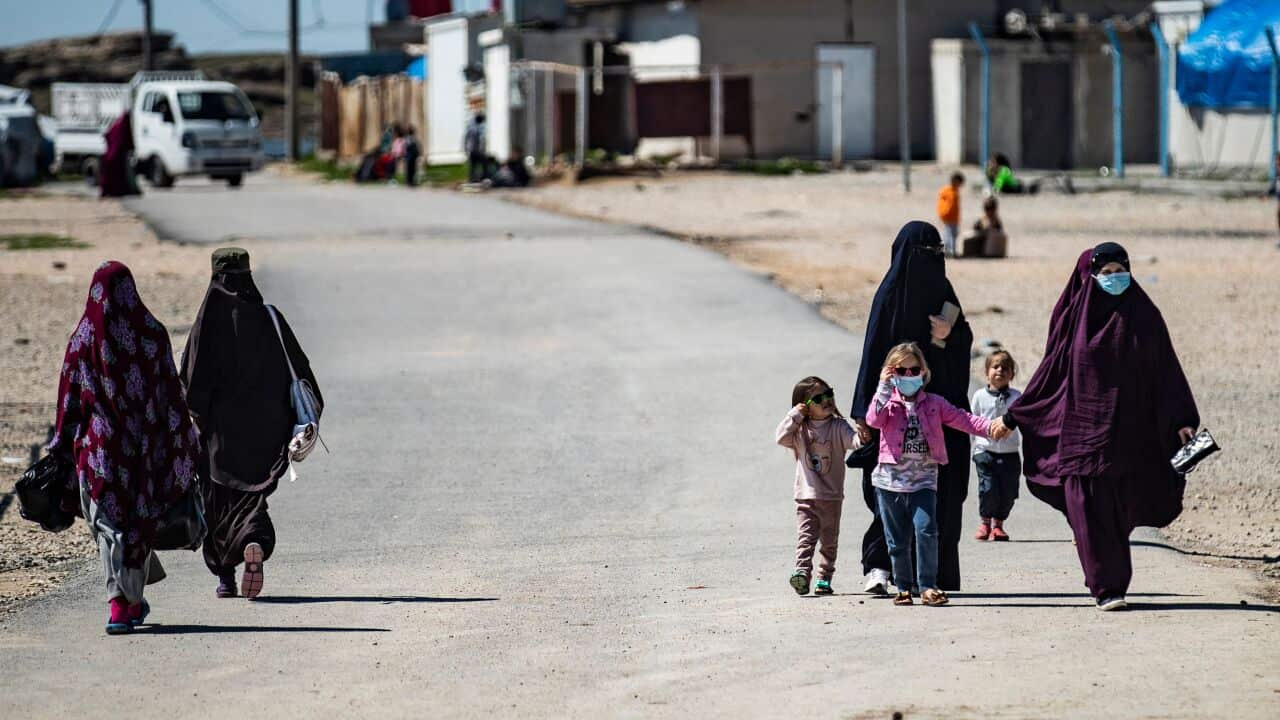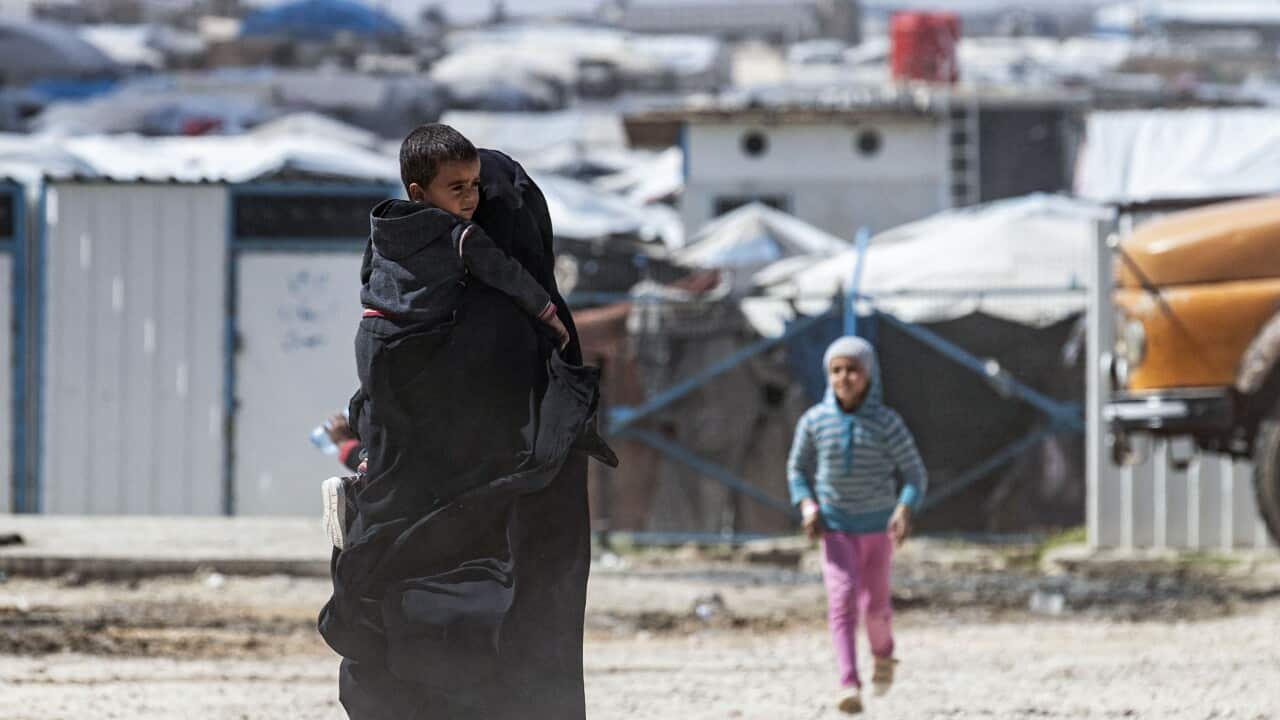Key Points
- Legal action is being launched against the Australian government over Australians trapped in Syrian detention camps.
- Aid agency Save the Children is acting as litigation guardian, describing the action as a "last resort".
- The women and children have been detained since 2019. 17 were repatriated in Australia, but about 40 remain trapped.
Legal action has been launched against the federal government in a "last resort" effort to repatriate Australian women and children trapped in Syrian detention camps.
Mat Tinkler, CEO of international aid organisation Save the Children, said the legal proceedings would seek to repatriate around 40 children and their mothers from Syrian camps to Australia.
"We take this really as a last resort," he told SBS News.
"We had hoped the government would take steps to repatriate these children and their mothers willingly, but the Albanese government has been in power now for almost a year," he said.
Despite some repatriations occurring in October last year, there are still around 40 missing children and their mothers detained in Syria, Mr Tinkler said.
The Australians in north-east Syria are families of fighters of the self-proclaimed Islamic State.
They have been held there since 2019 without charge and have long pleaded to be rescued and returned back to Australia.
Save the Children is acting as a litigation guardian in this matter as the plaintiffs - the children and their mothers - are unable to properly instruct from north-east Syria.
According to the aid organisation, a high-calibre legal team has been assigned to prepare a writ of habeas corpus - a proceeding that examines the legitimacy of a person's detention - on behalf of the trapped Australians.
A Department of Home Affairs spokesperson told SBS News its approach would be centred on national security.
"Our approach will be driven by national security considerations, and as such, we cannot comment further," the spokesperson said.

In October, 17 Australians were repatriated from Syria. Source: AAP
"It's a very desperate place, one of the worst places in the world to be a child," he said.
"We have grave fears that if those children aren't brought back to Australia, they will be injured or killed."
He said many of the children in detention have developed an illness or cognitive impairment as a result of the conditions they are living in.
"These kids have been through hell. Some of them were born in a detention camp in the middle of the Syrian dessert, there's no access to healthy, nutritious food," he said.
"Many of them are stunted, which means they're not only stunted but they're suffering cognitive impairment as a result, or have untreated illnesses."
Have Australians been repatriated from Syria before?
In October, 17 people were repatriated from Syria to Australia.
The four women and 13 children had been in Roj camp in northeastern Syria following the 2019 fall of IS, having travelled to the country with partners who were members of the militant group.
The federal government said extensive and detailed individual security assessments were undertaken before the group were repatriated to Australia.
"At all times the focus has been the safety and security of all Australians as well as the safety of those involved in the operation," Home Affairs Minister Clare O'Neil said in October.
In a statement following their repatriation, the repatriated women expressed their "regret" for the "hurt and trouble caused" by their actions.
“We are willing to do whatever is asked of us by government authorities to ensure the safety of our families and the Australian community and we will fully co-operate with all Australian law enforcement agencies," they said.
The women said they wanted to see their children lead a safe and normal life in Australia once they had received medical treatment.
"Together with our children, we have been through a terrible ordeal over many years," the women said, requesting space, privacy and time to reconnect with loved ones in Australia.
Mr Tinkler said the repatriated Australians were doing well, and adjusting to life in Australia.
"The kids are back in school, and they are getting the mental health support they need to reintegrate back into the Australian way of life," he said.
"They have been through significant trauma, but are doing well because they have their families around.
"There is no reason why this can't be repeated for other children as well."











